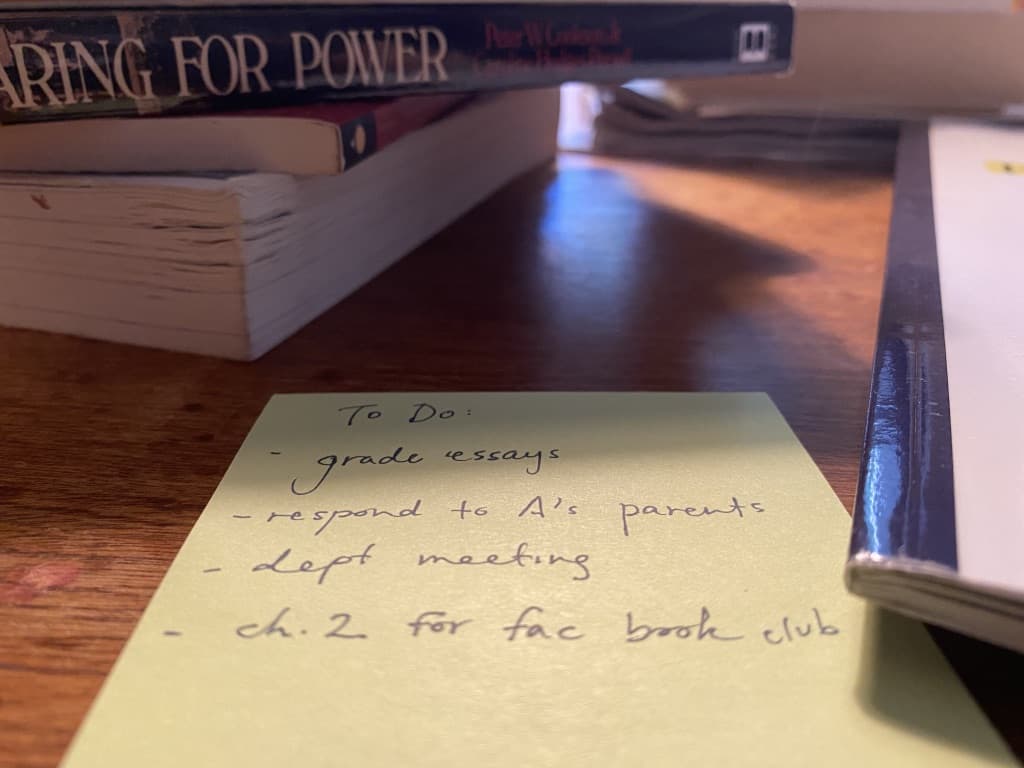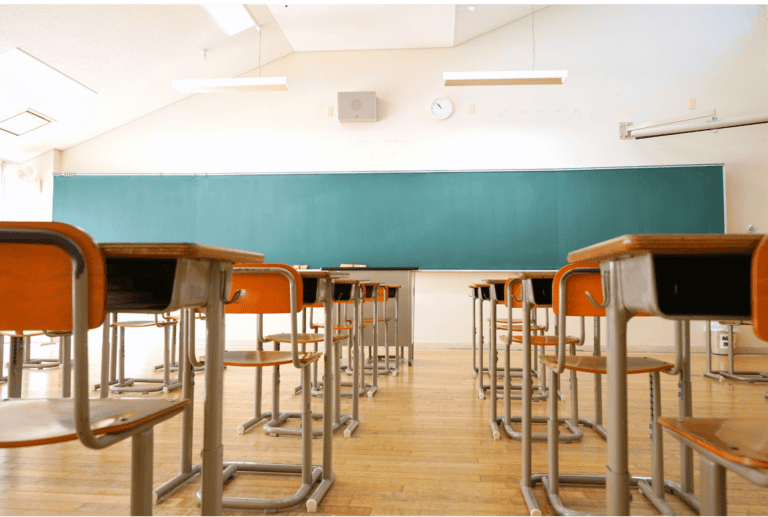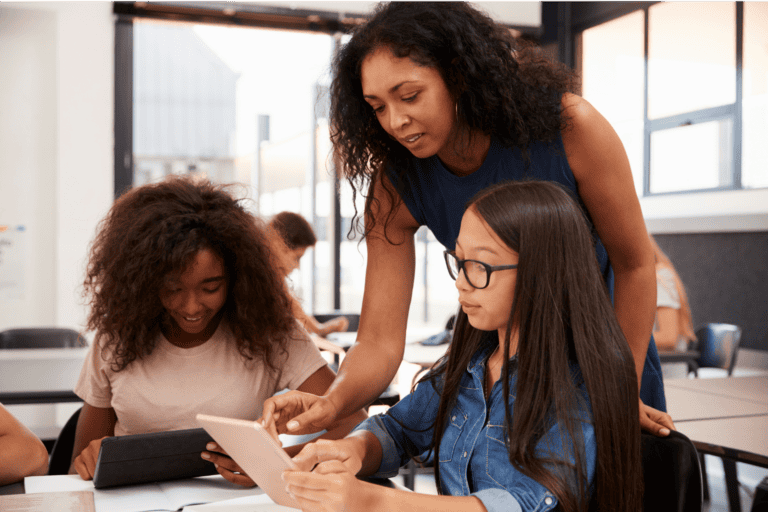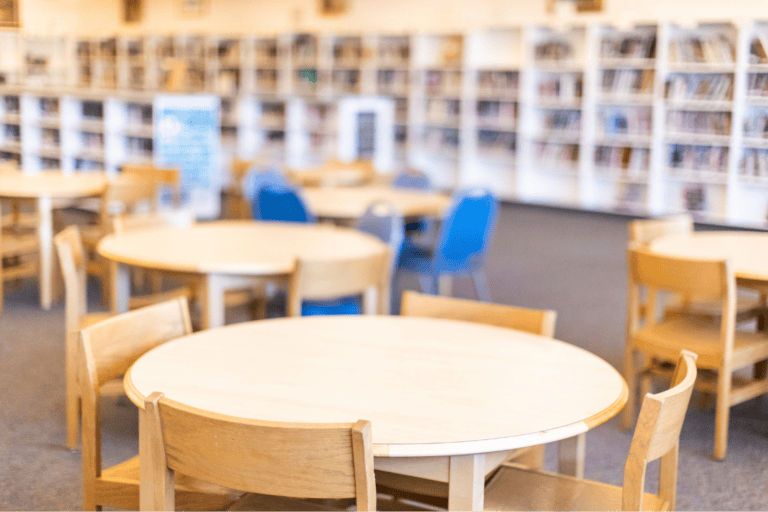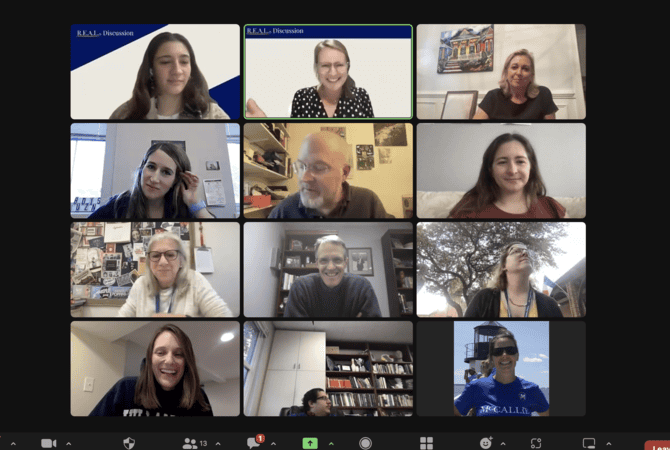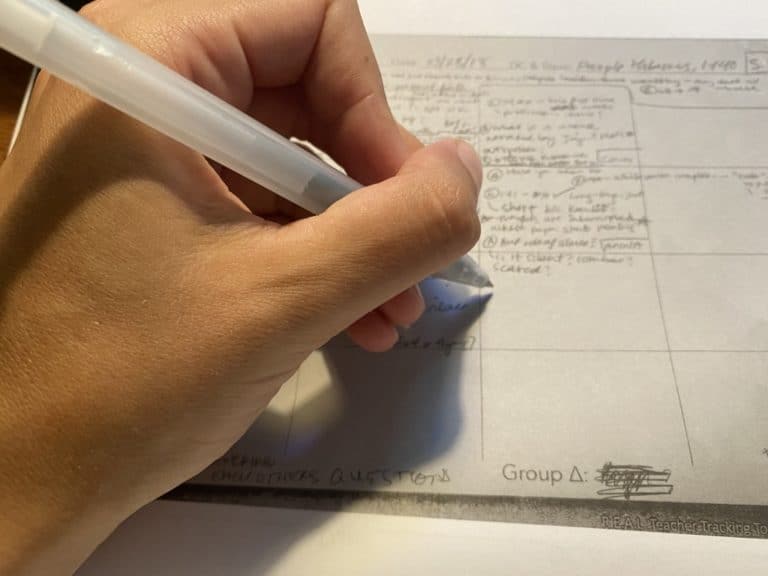Protagonists: Anna Gonzales
The Protagonists series highlights the main characters of our mission: the teachers out there hustling to make their students feel known, heard, and challenged through student-led discussion.
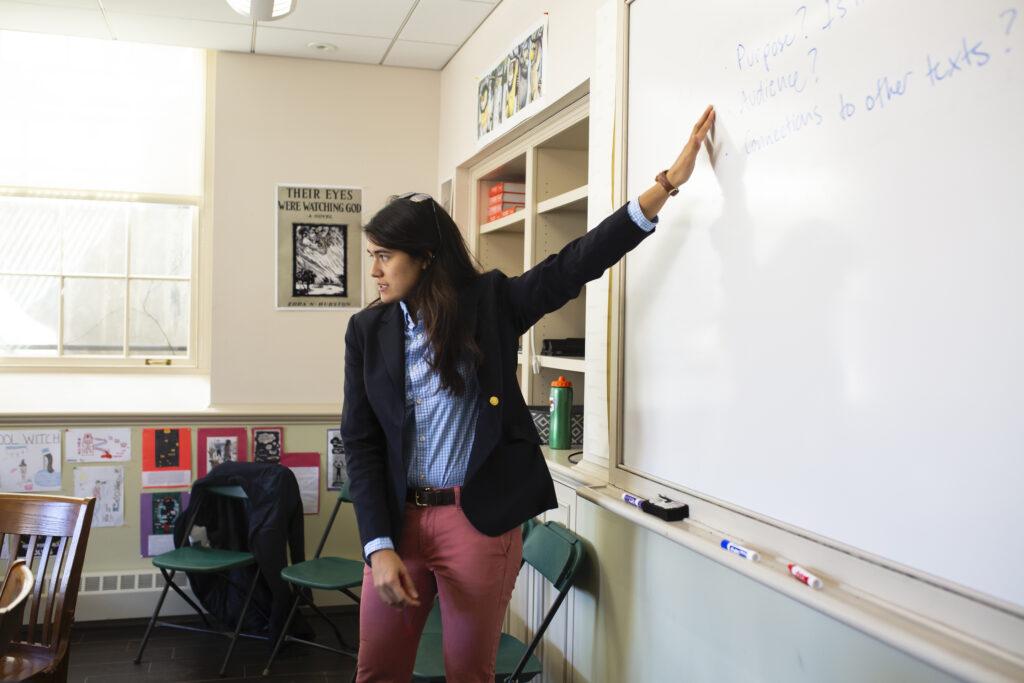
Anna Gonzales, English Teacher at Little Red Schoolhouse and Elizabeth Irwin School
Hometown: Denver, CO
Favorite teacher growing up: who and why? I went to a project-based, alternative elementary and middle school called the Logan School. I had a teacher named Patti, it was a mixed-grade classroom 6-8, and Patti knew all of us really well. I felt like she saw that knowing the kid in all different contexts is important, and it was really important with her to give that kind of care and create a real relationship. It created safety in the classroom. In college I had a professor named Rachel Buurma and I respected how she did all her research and collaborated across colleges while being a hardworking, committed teacher. I took two classes with her, and she noticed the ways my writing had evolved across years. That individual recognition is rare at the college.
Describe yourself as a student in three words: Motivated, curious, impatient.
Current City, School, Teaching Assignments (?) LREI in New York, NY. I’m teaching a yearlong 10th grade course, then two electives for upperclassmen in the Fall, Winter, and Spring. I’ll teach: Gender, Sexuality and Shakespeare; Epistolary Meditations on Race; Contemporary Poetry; Contemporary Native American Literature (“Writing Against Erasure”); and in the spring, a personal essay writing workshop.
Favorite historical figure (or best line from history?) : Pauli Murray. I thought that queerness and gender fluidity were recent formations of identity, and then I took Gender and Sexuality in college, and I realized that people have always been present and just not visible in publication and film. Pauli Murray was part of that learning for me.
Favorite literary character (or best line from a novel?) : Janie from Their Eyes Were Watching God. I love teaching that book, because she goes through this amazing claiming of herself, her sexuality, her love. It has a sad ending, but she also becomes the storyteller of the whole thing, and I do think that she has a happy ending, also. This book depicts Black joy, finding love, etc., and that’s really important to me right now as I build curricula.
Favorite school supply? I like these Pilot V5 pens… maybe that’s it? I’m always clicking them. I’d like to be the kind of person who has nice fancy Muji pens and notebooks, but I lose them. Also, I like index cards a lot, especially for essay writing.
Pet peeve about class (student-led?) discussion? Not listening to each other. That could be in the form of talking over each other, but it’s less interruption than when a student’s just disengaged from what a peer is talking about. It’s hard to be engaged for that long period of time, but when someone is consistently not plugged in, that’s annoying.
Favorite moment of class discussion? Either when a kid asks a really good question that’s a genuine discussion question, showing that they read closely and listened to others closely. I think that’s amazing. That or when a kid references something that another kid said in a previous class — that just shows, to me, that a kid deeply respects the humanity and intellect of their classmates and the work that we do together. They’re showing that they value discussion and showing the value of it at the same time.
Biggest challenge to good discussion in a virtual classroom? I would never let a kid have a screen open during a discussion. The expectation is that it’s not there between you and another person. The distractions and the stimulations are too strong. When everyone is actually engaged and active, it can work, but the temptation for me as an adult is really hard, and I haven’t always had the drip of stimulation into my brain that kids have had. The body language thing is so huge for listening in the classroom, and it feels almost impossible on a screen. All of those cues are lost, and Zoom is even more difficult because of that.
Text you count on to inspire conversation? “The Pool Witch” by Clay McLeod Chapman. The kids are like, “what the hell is this?” but they like it. Humor is super useful. Picking something weird and funny gets kids going. I like Terrance Hayes’ “American Sonnet for My Past and Future Assassin” — it’s a puzzle to the kids, totally fascinating, and they can talk for a long time. I don’t know what it means, and that’s why it’s so exciting to me to teach it. I learn something in discussion every single time.
What do you nerd out about? Historiography, sensationalist fiction and Victorian literature (Wilkie Collins, Mary Braddon)
What is your wish for this world? Bernie Sanders would be the President. Universal healthcare.
When historians recount 2020, what will they be especially fascinated by? Probably the use of TikTok as a political medium. And, I think, they’ll be fascinated by how we know what we need to do to stop Covid-19 but most people won’t do it. They’ll study that for a long time.
One prediction for the future of schools? I hope that student voice about what we teach and how we teach it will become valuable to more teachers and administrators (if only because they’re being publicly shamed now). I see more realization that it’s not just enough to diversify a curriculum, but also that we need different ways to teach and grade and think about the culture of power within schools. It feels like there’s a wider awakening to that, and that that results in better listening. I hope that there’s some real systemic change.
Best advice given to you by a department chair or supervisor? Mary Ellen Friends, a teacher at my formal school, told me that when someone criticizes me and I feel confronted, I can just say, “thank you for your feedback,” and leave the conversation. That was really helpful! Also, Anna Steim taught me the value of just being observed in the classroom. That mirroring is a critical part of being a reflective teacher and continuing to improve. You have to go against the shut-door private school mentality.
Educator-Influencer you count on? First place you turn for classroom advice? I ask my partner Anna LaSala-Goettler for advice, mostly, because she’s a really great teacher and cares about the same things. Then I go to Anna Steim and Mike Schloat — I really like the way that he treats kids and thinks about kids, and he was department chair when I started teaching.
Better discussions will _______________. Change the world, I think. Let students know themselves, their worlds, and their places in the world.
